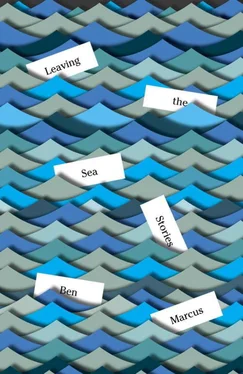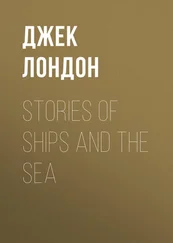The colleague was a long woman, medically attractive, perhaps intensely attractive. But when Thomas, as was his habit, called up in his mind the nude and indeed the coital prospect with her, simply to work out the mental visualization side of things, in place of vaginal goods Thomas could only conjure a charcoal sketch of the area, just a shabby pencil drawing of something he was supposed to want to bury his face in and weep with relief into. This bothered Thomas because although he could not draw, he could imagine all sorts of drawings, an encyclopedic catalog of, uh, especially rich imagery, which turned out to be an entirely useless ability.
It wasn’t the specific armature of nudity that he longed for, anyway (the canals and curves and rough red patches bursting with boiling hair), but something dutiful in him—as if his erotic strategy was being assessed through surveillance by specialists—bowed to an elementary form of sexual speculation, and he customarily launched this material on his inner slide show for their sake. Perhaps these specialists would see that Thomas could hew to the national erotic standard. But, if anything, he was fair-minded about his crotch pictures, courteously rendering them from the hips of nearly everyone he passed. The result was a kind of gallery, the mug shots, he called them, and it calmed him to realize that his central-most imaginative act, the vision work he was called to most consistently and which occupied him more than any other creative task, was to flesh out in his mind the sexual organs of everyone he saw and to catalog this data for later use. Mostly the genitage that colored his gallery was rendered from some distillation of a person’s face, that is, if the face had been squeezed like a sponge or crushed underfoot. The aesthetics here—what Thomas thought of as his functioning design paradigm, because he had read in one of June’s All About People! folios that we create our private images out of a deep sense of order, logic, beauty, and inevitability, whether we like it or not—involved the notion that a dog (or spouse or child or anything we care for and, in particular, feed) comes to look like its provider. Or something from the stronger, more powerful face is sprayed over the weaker face, rendering it nearly identical. There was a funny-sounding scientific rule to be invoked here, whatever it was called. An old biological trick, which makes us think, Thomas guessed, that we are really caring for and feeding ourselves. One’s crotch stuff should in some way invoke the face, tell a story about it, Thomas felt, or, rather, one’s face should, in its lines and swollen crags, map the sexual terroir . Someone more poetically afflicted could charge up better metaphors about that one. Or maybe it meant that his imagination was severely limited, deriving its ideas from the face. He guessed that artists would laugh at how obviously sourced his material was. Or maybe they’d just be bored. In any case, Thomas was confident that if he saw someone’s face, he could tell exactly what their genitals looked like. Exactly.
Once they arrived for their coffees, Thomas would have to try to drum up some chitchat with the colleague that would not, when it was analyzed for content and style and delivery, by just whoever gave a shit, get him committed to a home, or tossed in a closet that someone somewhere must keep warm for the miserable and lonely and disturbed. Which is what these people did, wasn’t it? They spoke in cold chunks of wordage and no one ever wept or seized or died. The nearly sexual urge Thomas had to destroy himself through difficult encounters, encounters like these with women who surpassed him in every measurable way, would provide the sweet subject matter for days of mistake analysis, the richest pastime. Now I know what I’m doing this weekend, he thought. It was as though he’d been programmed to do exactly the wrong thing, and not for the first time he pictured a keypad on his back that anyone could access, a sweaty keypad that he couldn’t very well clean without one of those curved brushes. This would be another part of his body that itched and hurt and broke and sometimes bled. Add it to the list. Fat Men with Itchy Backs would be the support group he would join. Let’s go program Thomas, the kids might say, and he would lift his shirt so they could have their fun, tucking forward until his belly bulged over his legs. Whose idea was it, this body of his? Do we need yet more reasons to feel disgusting? Or if not a keypad, maybe an embossed alphabet over the rib cage—if you can find my ribs, he thought—raised up in scarred topologies like a cattle brand, so pedestrians and God knows who else could effortlessly dispatch him into crisis and shame simply by coding him, even as he spent nights at home trying to fashion a utensil that would allow him to take control of the area, or at least to shield it from typing strangers.
Protection was what Thomas wanted, from people, their words, their bodies, and the storms they kicked up when they came anywhere near him. Couldn’t the office supply a saltwater receptacle for him to hide away and brine in when there was no actual work on his desk? A casket—upright, transparent, so the others could see him suspended in saline—to keep him from harm?
It wouldn’t matter. He’d sniff out the surplus misery anyway and grind his face in it until the itch stopped, but pretty fat chance of that.
It had been a day of no apparent weather, with gray cars hushing by like silent tracers and air so swaddled and wet it seemed filled with foam. Last week a streak of birds had been sent forth to pop and burst against the office window. Thomas figured it to be some pageantry tossed off by the city to stuff the sky with color, but the official word from the listserv was that a new timekeeping system was being tested. He hadn’t bothered to calibrate his watch to it, even as, hourly, birds smeared through the air, struck the office window, and dropped from sight after the impact. A neat poof, a bright cloud of dust, and the bald white clock on the wall clicked off another hour.
No one in the office, so far as he could tell, had even blinked, as if, oh, this kind of slaughter was just a matter of course. And if Thomas never actually saw a pile of birds rotting in the courtyard, such a pile was inferred, wasn’t it, which was quite enough of a worry to nurse until the office lights were browned down at sunset and the employees were released into the streets so they could stagger home, hump their wooden comfort dolls, and moan into their blankets all night. Or whatever Thomas imagined them doing when they weren’t construing allergic thresholds, putting the beaker to a theory, or tearing into sandwiches with a single, angry finger.
That was history now, sucked into some brownish whatever. There was no one else on their feet now except Thomas and the colleague. Thomas looked back into the cluster and saw necks and heads, fat red arms. It was error sampling time, at least in his unit, and it was nervous, spastic work. So much lab work resembled one’s early attempts at masturbation. There were angry little bursts of typing, and the group of employees seemed to wheeze as a single beast with one faulty lung. He was careful to silence himself while he walked after the colleague, to guard his breath and keep his pants legs from shooshing. But just because no one was looking at him didn’t mean his pursuit was going, uh, unnoticed. Thomas kept his head steady but stole his eyes toward the greasy surveillance camera, a lens jammed badly into some mottled Sheetrock, behind which Sully in the security room would be fastidiously ignoring them. Thomas guessed that Sully’s pants would be shucked and he’d be wrapping a slice of soft white bread around his penis while the security monitors revealed in blue light the morons who walked and slept and stood and self-groomed around Crawford Labs.
Читать дальше












